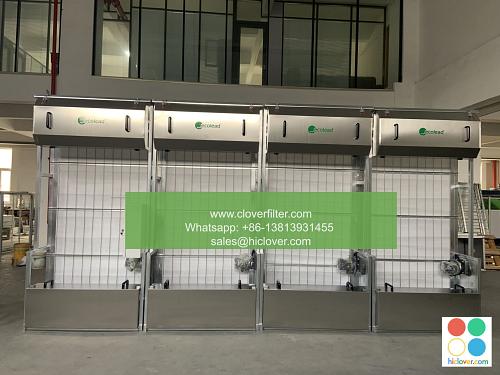All About Indoor Air Quality: A Guide to Understanding the Benefits of Air Filters

Indoor air quality (IAQ) is a critical aspect of maintaining a healthy and comfortable living or working space. The air we breathe indoors can be up to 5 times more polluted than outdoor air, due to the presence of airborne pollutants, allergens, and toxins. In this article, we will delve into the world of indoor air quality, exploring the benefits of air filters, and highlighting various application areas where they can be used to improve the air we breathe.
What is Indoor Air Quality (IAQ)?
Indoor air quality refers to the quality of the air inside buildings, homes, and other enclosed spaces. It is affected by various factors, including the presence of pollutants, humidity, temperature, and ventilation. Poor indoor air quality can lead to a range of health problems, including respiratory issues, headaches, and allergies. Common indoor air pollutants include particulate matter (PM), nitrogen dioxide (NO2), ozone (O3), volatile organic compounds (VOCs), and mold.
The Importance of Air Filters in Improving Indoor Air Quality
Air filters play a crucial role in improving indoor air quality by removing airborne pollutants, allergens, and toxins from the air. They work by capturing particles and gases, preventing them from circulating in the air and causing harm to occupants. There are various types of air filters available, including HEPA (High Efficiency Particulate Air) filters, activated carbon filters, and UV (Ultraviolet) filters. Each type of filter has its own unique benefits and application areas.
Types of Air Filters and Their Applications
* HEPA Filters: These filters are designed to capture 99.97% of particles as small as 0.3 microns, making them ideal for use in homes, hospitals, and other areas where high levels of air purity are required.
* Activated Carbon Filters: These filters are designed to capture gases, odors, and VOCs, making them ideal for use in areas where there are high levels of pollution, such as near highways or industrial sites.
* UV Filters: These filters use ultraviolet light to kill bacteria, viruses, and other microorganisms, making them ideal for use in areas where there is a high risk of infection, such as in hospitals and healthcare facilities.
Application Areas for Air Filters
Air filters have a wide range of applications, including:
* Residential Air Purification: Air filters can be used in homes to improve indoor air quality, reducing the risk of respiratory problems and allergies.
* Commercial Air Purification: Air filters can be used in offices, schools, and other commercial spaces to improve indoor air quality, reducing the risk of sick building syndrome and improving productivity.
* Industrial Air Purification: Air filters can be used in industrial settings to remove airborne pollutants and toxins, improving worker health and safety.
* Healthcare Air Purification: Air filters can be used in hospitals and healthcare facilities to remove airborne pathogens and prevent the spread of infection.
Benefits of Air Filters
The benefits of air filters are numerous, including:
* Improved Indoor Air Quality: Air filters can remove airborne pollutants, allergens, and toxins, improving the overall quality of the air we breathe.
* Reduced Risk of Respiratory Problems: Air filters can reduce the risk of respiratory problems, such as asthma and chronic obstructive pulmonary disease (COPD).
* Improved Productivity: Air filters can improve productivity by reducing the risk of sick building syndrome and improving cognitive function.
* Cost Savings: Air filters can save costs by reducing the need for medical treatment and improving equipment lifespan.
Conclusion
In conclusion, indoor air quality is a critical aspect of maintaining a healthy and comfortable living or working space. Air filters play a crucial role in improving indoor air quality by removing airborne pollutants, allergens, and toxins from the air. With various types of air filters available, including HEPA, activated carbon, and UV filters, there is a solution for every application area. By understanding the benefits of air filters and using them in residential, commercial, industrial, and healthcare settings, we can improve the air we breathe and reduce the risk of health problems. It seems like you haven’t provided a specific question or topic for discussion. Could you please provide more details or clarify what you would like to talk about?

